Met Police considers scrapping 1,000 neighbourhood PCSOs
- Published
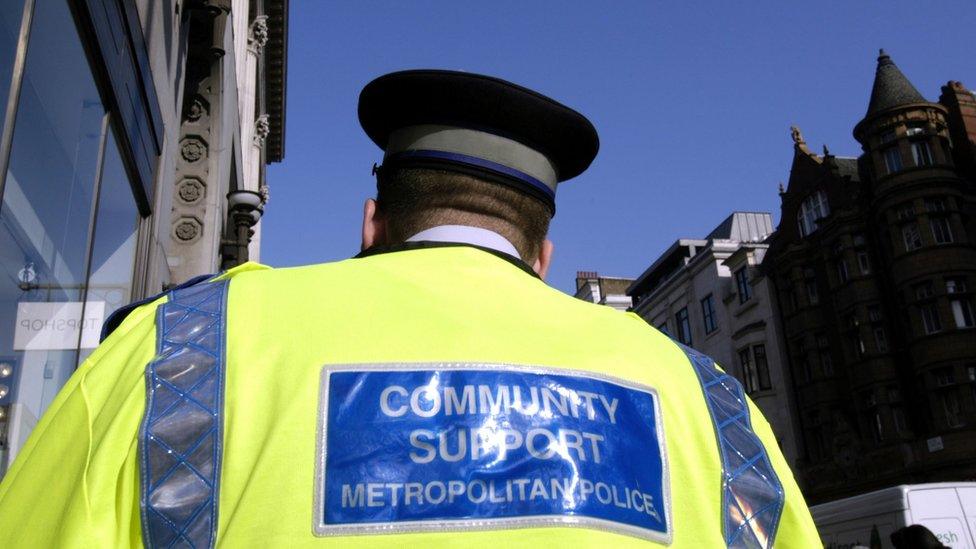
The Met Police said all Police Community Support Officers who could be affected have been informed
The Met is considering scrapping all 1,000 Police Community Support Officers (PCSOs) working in neighbourhoods in London, the BBC understands.
The move to axe PCSOs will be discussed at the next Management Board meeting.
The proposal comes at a time when the force is planning savings of at least £800m by 2019.
The Met said all PCSOs who could be affected have been informed. Labour said the move would be the "nail in the coffin" for neighbourhood policing.
'Three options'
The three options to be presented to senior officers are axing 1,017 PCSO posts, retaining 629 dedicated ward PCSOs to leave the equivalent of one in each London ward or keeping the existing structure.
PCSOs funded by other organisations, such as Transport for London, and PCSOs who work in Aviation Security (SO18) are not under threat.
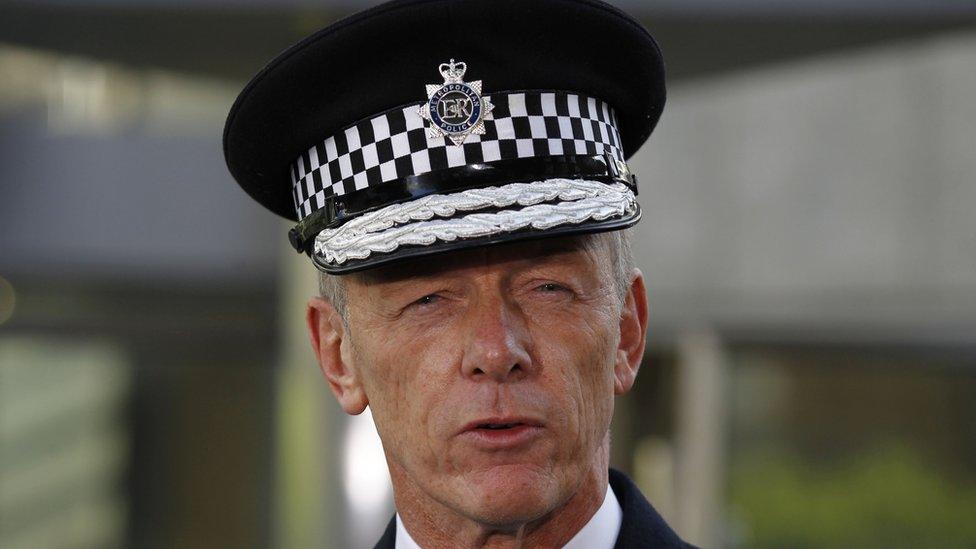
Sir Bernard Hogan-Howe has previously said there were "hard choices" to be made over PCSO numbers
Cdr Lucy D'Orsi, who is leading the neighbourhood policing project, said: "Like local communities we very much value PCSOs and their role in community engagement. They have been an integral part of the Safer Neighbourhoods model from the start.
"However, the financial pressures we are facing mean that we have a duty to consider all options available in order to meet those challenges and to ensure we deliver a quality policing service to London's communities."
Metropolitan Police commissioner Sir Bernard Hogan-Howe has previously said there were "hard choices" to be made over whether the number of PCSOs could be maintained.
PCSOs were introduced in London in 2002 to provide increased police presence and to enable regular police officers to make more effective use of their specialist skills tackling crime.
'Nail in the coffin'
They are not police officers, but are civilian members of police staff who have different powers to police officers.
Until a few years ago there were three PCSOs in every ward in every borough in London, but that was reduced in a shake-up of neighbourhood policing initiated by Sir Bernard.
Labour London Assembly member Joanne McCartney said: "Axing all of London's PCSOs would be the final nail in the coffin for neighbourhood policing and mean far fewer officers on the beat in our communities acting as the eyes and ears of the Met."
Stephen Greenhalgh, deputy mayor for policing and crime, said no decision had been made, but he suggested losing all neighbourhood PCSOs would be a step too far.
"The case for any change would have to be made powerfully, alongside a public consultation.
"It is likely that tough choices will need to be made, and we are aware that the Met are considering ways in which they can balance the books and manage possible reductions in their budget beyond 2016," he said.
The Public and Commercial Services Union (PCS) said PCSOs were crucial in developing and maintaining trust and were more representative of the capital's population than police officers.
PCS general secretary Mark Serwotka said: "We don't believe this is in the best interests of Londoners and we are calling on the Met to halt the plans and allow for proper negotiations around the alternatives."Met considers scrapping 1,000 PCSOs

What are PCSOs?
Member of Metropolitan Police Service police staff
PCSOs have more than 30 powers, including the power to direct traffic and pedestrians and the power to confiscate alcohol
PCSOs do not have the power of arrest but they can require a suspect to remain with then until a police officer arrives
They only have powers when they are in uniform
PCSOs carry a protective vest and radio, but do not carry handcuffs, a baton or CS spray
They have no duty to intervene and can withdraw from high risk situations.
Source: Met Police, external
- Published13 March 2015
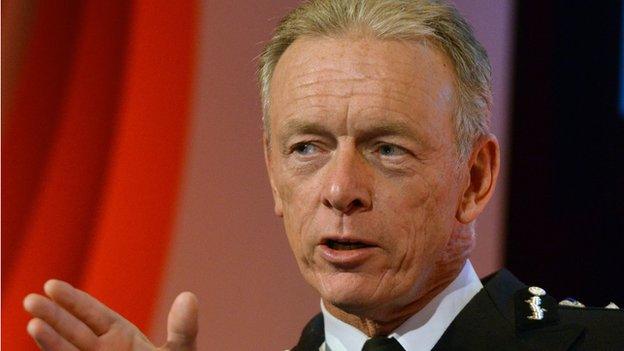
- Published6 January 2015
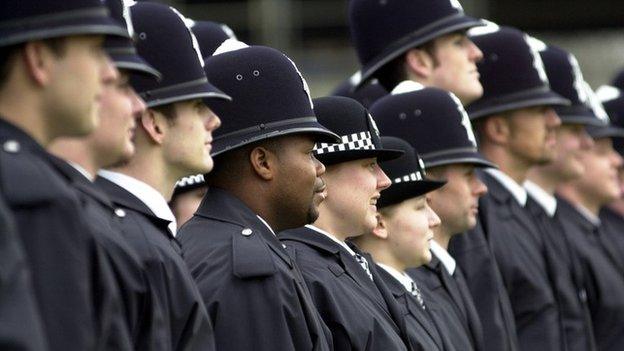
- Published4 January 2015
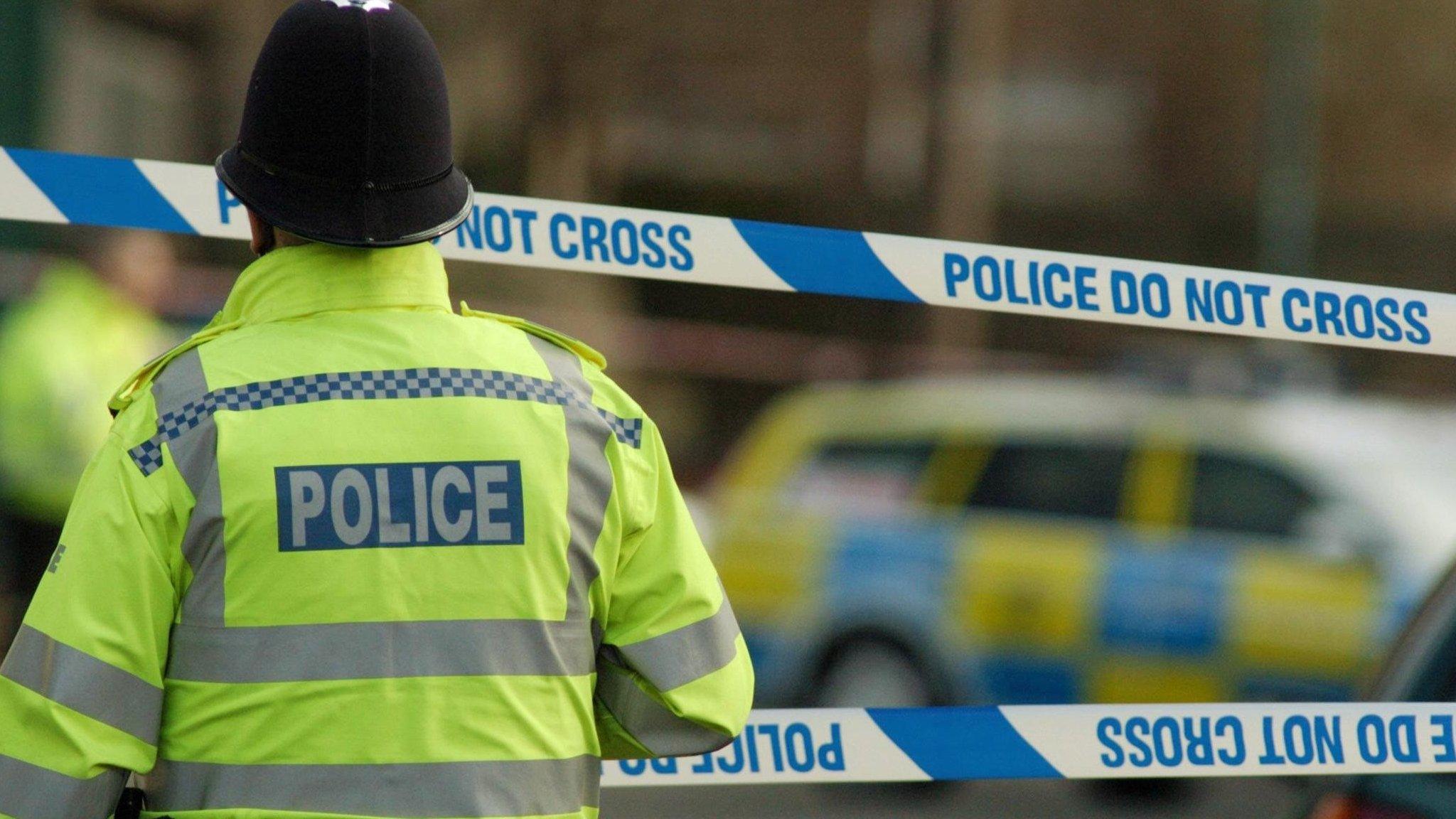
- Published15 December 2014
